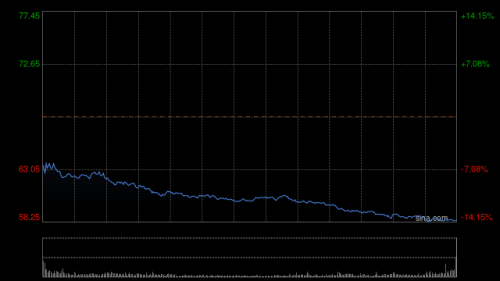your current location is:Home > TechnologyHomeTechnology
Is AMD ready for a "death battle" with Intel in September?
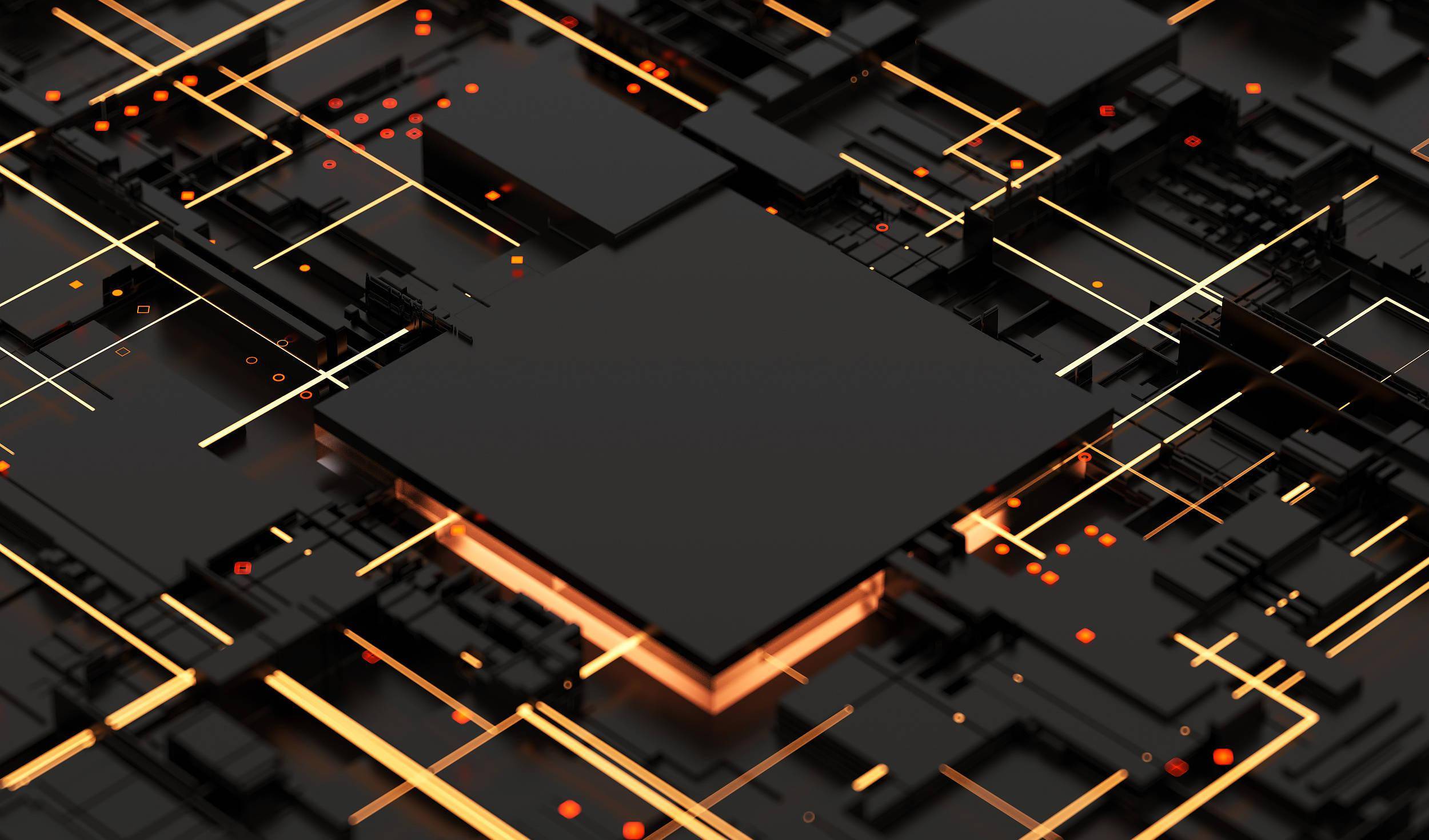
Time came to August unknowingly, and nearly two-thirds of 2022 has passed. Friends who often pay attention to PC digital news should have found that the news about AMD has increased significantly recently, and the voice that was originally suppressed by Intel is finally there. Signs of a rebound.
Although it was reported earlier that AMD may announce a new generation of Ryzen processors in September, there is actually not much evidence to support this revelation. However, as time entered August, the content of the financial report meeting and the X670 motherboard news exposed by various PC hardware manufacturers basically confirmed that the Ryzen 7000 series processor will be released at the end of August, and will be officially released in September. Continued On AMD vs. Intel's processor war.
As soon as August arrived, a large number of news of the Ryzen 7000 series processors were exposed, from specifications to performance, and even the actual picture of the appearance, basically only the price has not been disclosed. Obviously, such a large-scale information exposure cannot be solved by the "uncle party". In all likelihood, AMD officials are pushing for it to create heat in advance, just like a series of exposures around the 12th-generation Core before its release.
However, the premise of early exposure is that your own products can really play, otherwise once users see the real thing and find that it is not as good as the 12th-generation Core, then AMD's reputation will basically be over. So what is the performance of AMD's Ryzen 7000 series processors? Can it reverse the current decline of AMD processors in one fell swoop?
ZEN4 "great achievement"?
Like the 12th-generation Core, ZEN4 has high expectations from AMD. It not only significantly modified the chip appearance of the Ryzen series processors for the first time, but also further optimized the architecture and adopted TSMC's 5nm process. If the previous ZEN to ZEN3 are optimized and upgraded versions of the same generation of products, then ZEN4 is the ultimate version of the series, the ultimate masterpiece of AMD's great achievements.
Of course, some upgraded overclocked versions may be launched in the future, but they are not considered to be a new generation of products in essence. As the final work of the pure big-core era, the performance of ZEN4 is also enough to make people look forward to it, especially some gamers have already begun to gear up and want to see what the full-core + ultra-high cache and main frequency of ZEN4 can bring. gaming experience.
Judging from the news released so far, there are four first products of the Ryzen 7000 series processor.
Ryzen 5 7600X: 6 cores 12 threads, 4.7GHz-5.3GHz, 32MB three buffers, TDP105W
Ryzen 7 7700X: 8 cores 16 threads, 4.5GHz-5.4GHz, 32MB three buffers, TDP105W
Ryzen 9 7900X: 12 cores, 24 threads, 4.7GHz-5.6GHz, 64MB three buffers, TDP170W
Ryzen 9 7950X: 16 cores, 32 threads, 4.5GHz-5.7GHz, 64MB three buffers, TDP170W
Ryzen 5 7600X: 6 cores 12 threads, 4.7GHz-5.3GHz, 32MB three buffers, TDP105W
Ryzen 7 7700X: 8 cores 16 threads, 4.5GHz-5.4GHz, 32MB three buffers, TDP105W
Ryzen 9 7900X: 12 cores, 24 threads, 4.7GHz-5.6GHz, 64MB three buffers, TDP170W
Ryzen 9 7950X: 16 cores, 32 threads, 4.5GHz-5.7GHz, 64MB three buffers, TDP170W
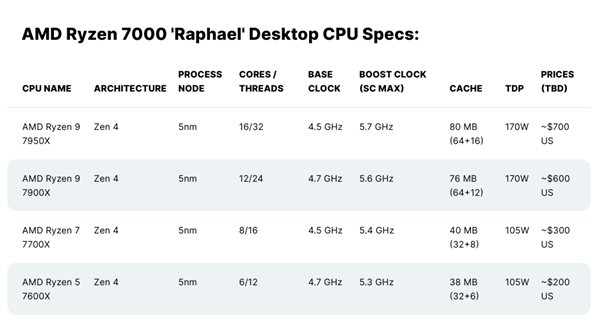
Image source: Internet
From the data alone, it is quite good. Compared with the previous generation of processors of the same level, the main frequency has increased by more than 500MHz, and some models have an increase of more than 1100MHz. For example, the silent frequency of the 7950X has increased by 1100MHz compared to the 5950X. , the acceleration frequency is increased by 800MHz.
Considering the IPC improvement brought by the architecture upgrade, although the official data is not as high as the previous generation by more than 15%, there is also an increase of 8-10%. Coupled with the performance brought by the increase in the main frequency, the official data believes that the single-thread performance will increase by more than 15%, and the multi-thread performance will increase by as much as 35%. Moreover, thanks to the upgrade of the process technology, the energy efficiency ratio will also be improved by 25%. .
At least from the paper data, the Ryzen 7000 series processors have a very good improvement, but the power increase is also very obvious. Although AMD's TDP data has always been complained by netizens as a number, it cannot be denied that it has a certain reference value. At least from the perspective of TDP, the 5600X is only 65W, and the 40W TDP increase shows that its power consumption has increased significantly. Of course, it may also be AMD. This time choose to label the real TDP.
In addition, according to the exposed information, although the third buffer is the same as the previous generation, the large increase in the second buffer makes it have a very high cache bandwidth. At present, the bandwidth of the 7900X exposed is as high as 1450GB/s, which is more than 50% higher than that of the 5900X. With the soaring performance of the three buffers, the game performance of the 7000 series should be quite good, and some netizens predict that it will not lose to the 13th generation Core processor.
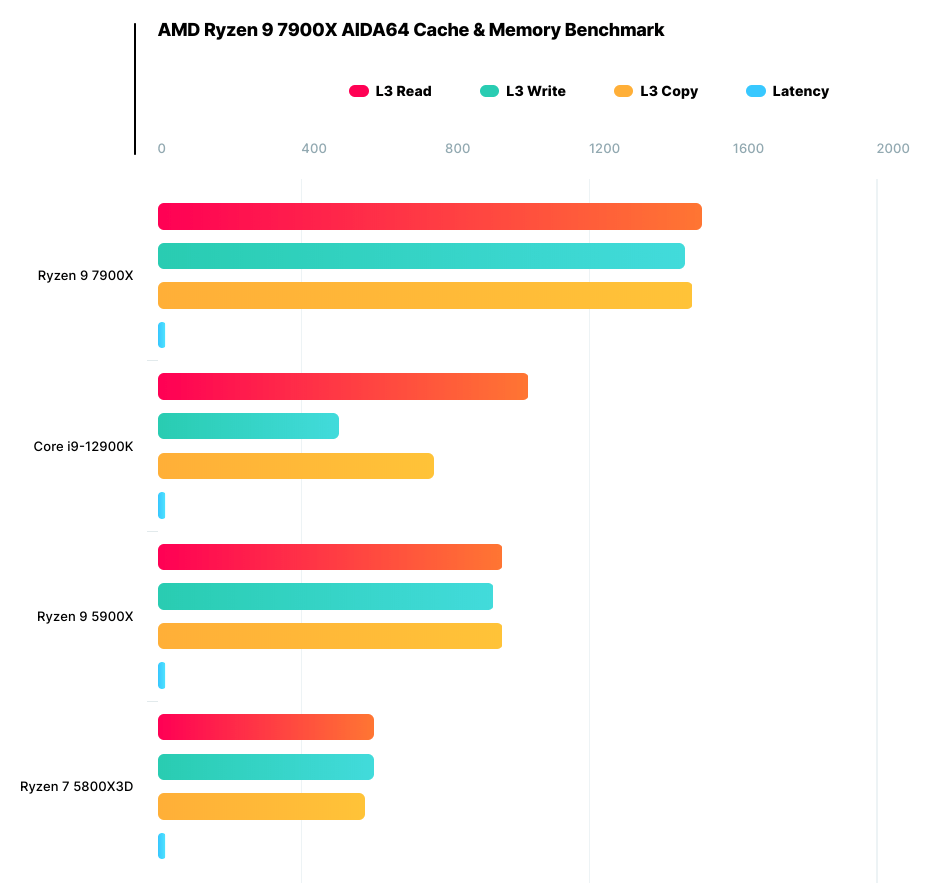
Image source: Internet
Of course, only AMD knows how to estimate the actual performance. It is estimated that it will take some time for the processor to be lifted. However, I am optimistic about the performance of AMD's 7000 series processors. On the other hand, from AMD's publicity of its new processor, we can also feel that AMD has a lot of confidence in the chip. In simple words: AMD's voice has become louder.
The past year has been somewhat difficult for AMD. After all, the emergence of the 12th-generation Core has completely ended AMD’s performance advantage that has lasted for several years. Moreover, the performance of single-core and multi-core has been surpassed. In addition, the price reduction of AMD's processors and motherboards has been very low, resulting in a significant decline in the recent sales of AMD processors. out of AMD's decline).
Although AMD's 5000 series has many advantages over the 11th-generation Core, many players have postponed or canceled their installation plans at the time when graphics cards have skyrocketed. As a result, although the 5000 series has a good reputation, the overall sales are not optimistic, and the launch time of Intel's 12th generation Core happened to be the time when the virtual currency began to fall and the graphics card returned to normal, so that the 12th generation Core was sold or discussed in the public. The degree must be higher than the 5000 series.
To a certain extent, the 5000 series is a bit untimely, so it is up to the 7000 series to suppress Intel's counterattack.
AMD, Intel have brightened up
After AMD showed the 7000 series processor, Intel also secretly exposed its own 13th generation Core processor parameters and running points. Judging from the running score data, the 13th generation Core also performed amazingly. Compared with the 12th generation, the performance of single-core and multi-core has been significantly improved, and the i5 almost overwhelmed AMD's current flagship processor Ryzen 9 5950X.
Moreover, the expected launch date of the 13th-generation Core is the end of September, and there will also be three series of processors i5, i7, and i9 to take the lead, and other models will be released later. The new processors of the two semiconductor giants have been released one month apart, making this autumn full of gunpowder.
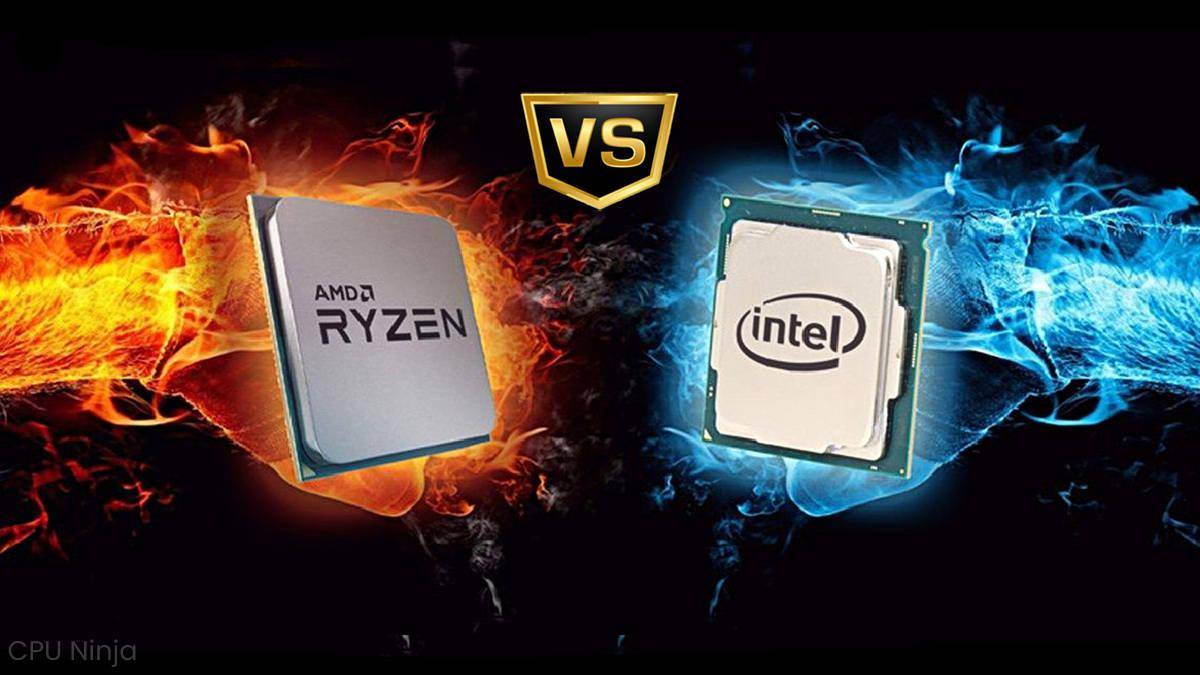
For Intel, this is an excellent opportunity to defeat AMD head-on, because the difference between the release time of the 12th-generation Core and the 5000-series processors makes many users think that Intel is a bit invincible. Only the new products released by the opponent during the time period can make everyone realize that Intel is really the king.
From AMD's point of view, this showdown is also very important. It is about whether it can maintain the market share that it took for several years. If it fails, I am afraid that before ZEN5 goes on sale, AMD will return to the time when Intel was pressed and beaten. . Although from the current information, although the performance of the 13th generation Core is very good, the power consumption performance is not optimistic. There are even rumors that the maximum power consumption of the 13th generation Core exceeds 400W. From the current overclocking power consumption of 12900K, This rumor is true.
Whether it is AMD or Intel, at least a few points can be confirmed. For example, the performance of the three buffers is generally upgraded, the main frequency is generally increased to above 5.0GHz, and it can be achieved without manual overclocking. If you manually overclock, you may be able to challenge 6.0GHz. It is the power consumption soaring.
It is foreseeable that the power consumption of the 13th-generation Core and Ryzen 7000 series will not be low, and the requirements for the power supply module and power supply of the motherboard will become much higher, especially for some power supplies without dual CPU power supply interfaces, I am afraid it will cost money. Money is upgraded. Moreover, the rising cost of power supply modules will also drive up the price of motherboards. Coupled with the cost of a series of hardware such as DDR5 memory controllers, the matching motherboards for the next-generation processors will probably not be cheap.
In addition, the air-cooled radiators currently used by most people may be difficult to suppress the next-generation processors, and water cooling may replace air-cooling as the first choice for most gamers in the future.
To sum up a little, AMD's Ryzen 7000 series should have lower power and cooling requirements than Intel, but a new generation of motherboards needs to be replaced, because ZEN4 will use a new AM5 interface and no longer support the previous generation AM4 interface (completely unsupported, Don't expect magic changes).
For Intel, it is necessary to replace the heat dissipation and power supply. Although the interface remains unchanged, if your motherboard power supply module has average performance, then I am afraid that you need to upgrade the motherboard to better cope with the overclocking needs of the 13th generation Core.
In terms of upgrade cost alone, the two are probably half a catty, and the actual experience needs to be tested later. If the final result is half a catty, then gamers are afraid that they will have to struggle for a while.
Previous:Instagram copy of TikTok is disliked
Next:Samsung Galaxy Watch5 series smart watches released: support heart rate, body temperature monitoring
related articles
Article Comments (0)
- This article has not received comments yet, hurry up and grab the first frame~









